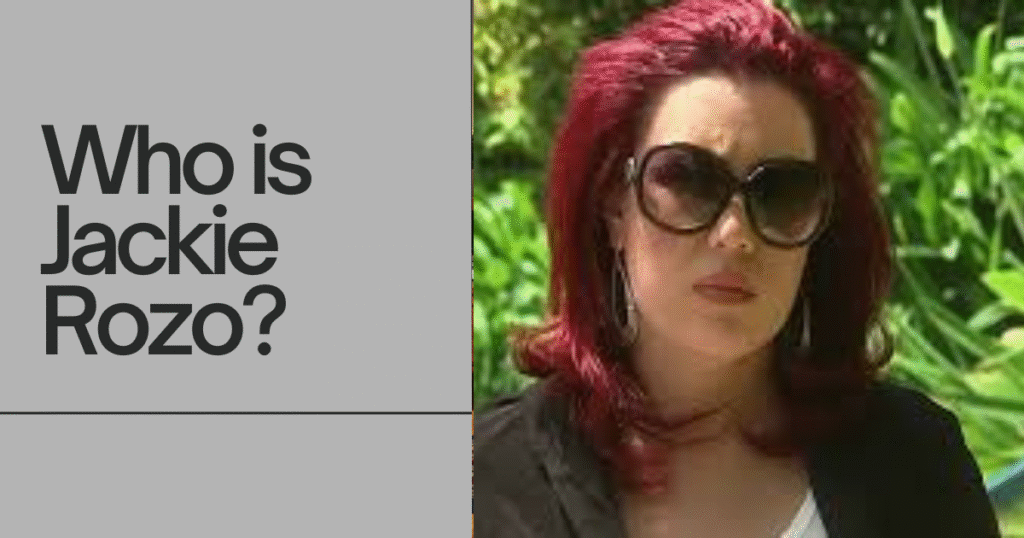
In an era where celebrity children build Instagram empires before they can drive, one young woman made a radical choice: she disappeared. Julitta Dee Harden Scheel, daughter of Academy Award-winning actress Marcia Gay Harden, has virtually no social media presence, minimal acting credits, and guards her privacy with remarkable discipline. At 21 years old, she’s become what’s increasingly rare in Hollywood—a celebrity child who actually lives like a normal person.
But her story is far more interesting than simple privacy. As someone who identifies as “fluid,” Julitta inspired her mother’s fierce LGBTQ+ advocacy that’s reached millions. She witnessed her parents’ divorce at eight, supported her gay twin brother through coming out, and watched her Oscar-winning mother face hate mail for defending her children’s identities.
This is the complete story of Julitta Dee Harden Scheel—who she is, what she represents, and why her choice to live privately might be the most powerful statement she could make.
Quick Answer: Who Is Julitta Dee Harden Scheel?
Julitta Dee Harden Scheel (born April 22, 2004) is the 21-year-old daughter of Oscar-winning actress Marcia Gay Harden and prop master Thaddaeus Scheel. She is a twin to brother Hudson and younger sister to Eulala Grace. Julitta identifies as fluid within the LGBTQ+ spectrum and has chosen a private life despite minimal acting credits in shows like Kidding and Code Black. She inspired her mother’s prominent LGBTQ+ advocacy work.
Quick Facts: Julitta Dee Harden Scheel at a Glance
| Category | Details |
| Full Name | Julitta Dee Harden Scheel |
| Date of Birth | April 22, 2004 |
| Current Age | 21 years old (as of 2025) |
| Place of Birth | New York City, New York |
| Parents | Marcia Gay Harden (actress), Thaddaeus Scheel (prop master) |
| Siblings | Hudson Harden Scheel (twin brother), Eulala Grace Scheel (older sister) |
| Gender Identity | Fluid |
| Acting Credits | Kidding (2018), Code Black (2015), Trophy Wife (2013) |
| Education | Not publicly disclosed |
| Social Media Presence | Minimal to none |
| Known For | Being Marcia Gay Harden’s daughter; inspiring LGBTQ+ advocacy |
| Parents’ Status | Divorced (2012) |
| Notable Public Appearances | 2022 Creative Arts Emmy Awards, Adrift premiere (2018) |
The Family Foundation: Growing Up Harden-Scheel
Julitta entered the world on April 22, 2004, alongside her twin brother Hudson in New York City. Their mother, Marcia Gay Harden, had already won her Academy Award for Best Supporting Actress in Pollock (2001) by the time the twins arrived. Their father, Thaddaeus Scheel, worked behind the scenes as a respected prop master in the film industry.
The family dynamic blended Hollywood prestige with artistic grounding. Marcia describes herself as a hands-on mother who prioritized family time despite demanding filming schedules. The children split their time between New York and Los Angeles, experiencing both coasts’ distinct cultures.
Julitta’s older sister, Eulala Grace Scheel, was born six years earlier in 1998. This age gap meant Julitta and Hudson had a built-in ally closer to their own age, while Eulala provided an older sibling perspective. The three children developed unusually close bonds that would later prove crucial during challenging times.
Their father, Thaddaeus, met Marcia on the set of The Spitfire Grill in 1996. As a prop master, he brought creative sensibility and technical expertise to the relationship. This dual artistic household—one parent in the spotlight, one behind the scenes—gave the children unique perspective on entertainment industry realities.
The 2012 Divorce: A Turning Point at Age Eight
When Julitta was eight years old, her parents separated. Marcia and Thaddaeus divorced in 2012 after sixteen years of marriage. Unlike many high-profile Hollywood splits, this one remained relatively amicable, with both parents committed to co-parenting.
For young Julitta, this transition occurred during formative years. Eight years old is when children develop stronger understanding of family dynamics and personal identity. The divorce didn’t fracture the family bonds—instead, both parents worked to maintain stability.
Marcia has spoken about the importance of keeping her children’s lives consistent during this period. The twins continued their education, maintained friendships, and received support from both parents. This stability likely contributed to Julitta’s later confidence in expressing her authentic identity.
Understanding “Fluid”: What Julitta’s Identity Really Means
In May 2023, Marcia Gay Harden publicly revealed during the “Drag Isn’t Dangerous” telethon that her youngest child is “fluid.” But what does that actually mean?
Defining Fluid Identity
Gender fluidity—or simply being “fluid”—means a person’s gender identity isn’t fixed. It can shift or change over time, existing on a spectrum rather than as a binary choice. For Julitta, identifying as fluid means she doesn’t confine herself to traditional gender categories or expressions.
This differs from several related identities:
Nonbinary (like her sister Eulala): Identifies outside the male/female binary entirely Genderqueer: An umbrella term for gender identities that don’t conform to conventional expectations Transgender: Identifies as a gender different from their sex assigned at birth Fluid: Gender identity or expression may change depending on context, time, or situation
Being fluid is not about confusion—it’s about authenticity. It acknowledges that gender can be complex and personal, not neatly categorized. For some fluid individuals, their identity shifts daily. For others, it evolves over months or years. There’s no single “right way” to be fluid.
Why This Matters in 2025
Julitta’s generation (Gen Z, born 1997-2012) views gender and sexuality more fluidly than any previous generation. Studies show that approximately 20% of Gen Z identifies as LGBTQ+, compared to 10% of Millennials and less than 5% of Gen X.
This shift represents fundamental change in how young people understand identity. Rather than viewing gender as destiny determined by biology, they see it as one aspect of complex personhood that can be explored, questioned, and defined individually.
Julitta’s public identification as fluid—revealed by her mother with presumably her permission—adds visibility to an identity that many people still don’t understand. It normalizes the idea that you don’t have to “pick a side” or conform to others’ expectations about who you should be.
The Family’s Complete LGBTQ+ Story
What makes the Harden-Scheel family remarkable is that all three children identify as queer:
Eulala Grace Scheel (27): Nonbinary, working as a sculptor and ceramicist Hudson Harden Scheel (21): Gay, studying musical theater at Royal Conservatoire of Scotland Julitta Dee Harden Scheel (21): Fluid
This isn’t random chance—it likely reflects a family environment where authenticity was encouraged from early ages. When children feel safe expressing their true selves, they’re more likely to do so. The statistical probability of all three children identifying as queer suggests they felt supported in exploring and claiming their identities.
The Twin Bond: Julitta and Hudson’s Unique Connection
Twins share a relationship unlike any other sibling dynamic. Julitta and Hudson were born minutes apart, grew up sharing rooms and experiences, and navigated their identities in parallel.
Hudson came out as gay in seventh grade—around age 12 or 13. This means Julitta witnessed her twin brother’s coming-out process during her own early teenage years. For twins, one sibling’s experience often influences the other’s journey.
Hudson pursued his passion for musical theater aggressively. He attended the prestigious Interlochen Center for the Arts in Michigan, graduating in 2022. He then moved internationally to study at the Royal Conservatoire of Scotland in Glasgow, one of Europe’s leading performing arts schools. His expected graduation is 2025.
While Hudson chose a high-visibility artistic path, Julitta took the opposite approach. This divergence is common among twins—each seeking to establish individual identity separate from their twin. Hudson became the performer; Julitta became the private one.
Yet they remain close. Marcia has shared social media posts about visiting Hudson in Scotland, with family gatherings that include both twins. Their bond appears strong despite different life choices—a testament to a family that supports individual paths rather than demanding conformity.
Marcia Gay Harden: The Mother Who Became an Activist
Understanding Julitta requires understanding her mother’s transformation into one of Hollywood’s most vocal LGBTQ+ advocates.
From Actress to Activist Mother
Marcia Gay Harden built an impressive career with roles in Pollock (Academy Award winner), Mystic River (Oscar nomination), The Mist, and recently So Help Me Todd and The Morning Show. She’s known for choosing complex, strong female characters.
But her most important role became “mother to three queer children.” In interviews since 2023, Marcia has been remarkably candid about her advocacy’s origins:
“What drives me is my children are all queer. My eldest child is nonbinary. My son is gay. My youngest is fluid. And you know, they are my kids and they teach me every day.”
This wasn’t always easy. Marcia has revealed she received hate mail after publicly discussing her children’s identities. Some people criticized her parenting, suggesting she “made” her children queer—a scientifically baseless claim that reflects persistent ignorance about sexual orientation and gender identity.
Her response? She doubled down. Rather than retreating to protect her privacy, Marcia became more vocal, speaking at LGBTQ+ rights events, supporting anti-discrimination legislation, and using her platform to normalize queer identities.
How Julitta Inspired Her Mother’s Activism
While Hudson’s coming out in seventh grade was Marcia’s first experience with a queer child, Julitta’s fluid identity added another dimension. Having one LGBTQ+ child is statistically less common than having zero. Having three suggests either genetics, environment, or most likely: a safe space where children could be honest about who they are.
Marcia’s advocacy isn’t abstract political posturing—it’s fiercely personal. When politicians pass anti-drag legislation or bathroom bills targeting transgender individuals, Marcia sees threats to her children’s safety and dignity. When schools ban books featuring LGBTQ+ characters, she sees erasure of her children’s experiences.
Julitta may keep a low profile, but her existence as a proud fluid individual gives her mother’s activism authenticity and urgency. Every speech Marcia gives, every event she attends, every donation she makes to LGBTQ+ organizations—Julitta is part of that motivation.
The Hate Mail and Its Impact
Marcia has been candid about receiving negative responses to her public support of her queer children. Hate mail came from strangers who felt entitled to judge her parenting. Some accused her of “encouraging” her children to be LGBTQ+—as if sexual orientation or gender identity can be taught.
For Julitta, knowing your mother receives hatred because of who you are could be devastating. Or it could be empowering—proof that your mother loves you enough to face public criticism. Based on Marcia’s continued advocacy and the family’s apparent closeness, the latter seems true.
This dynamic likely strengthened Julitta’s sense of self. When your mother publicly defends your identity against bigotry, it sends a powerful message: You are not wrong. You are not shameful. You are loved exactly as you are.
People Also Love to Read This: Who Is Christa Podsedly: The Strategic Mind Behind Scott Steiner’s Empire
The Acting Career That Wasn’t: Julitta’s Minimal Hollywood Presence
Unlike many celebrity children who leverage family connections for major roles, Julitta has minimal acting credits:
Her Complete Filmography
1. Trophy Wife (2013): TV series – minor role when she was just 9 years old 2. Code Black (2015): Medical drama series – guest appearance 3. Kidding (2018): Jim Carrey series on Showtime – small role
These aren’t starring vehicles or career-launching opportunities. They’re brief appearances, likely facilitated by her mother’s industry connections, that gave her a taste of acting without committing to it as a career.
Compare this to other celebrity children born around 2004:
Suri Cruise (Katie Holmes & Tom Cruise): Heavily photographed throughout childhood, now pursuing fashion Shiloh Jolie-Pitt (Angelina Jolie & Brad Pitt): Constant tabloid subject, pursued dancing seriously Apple Martin (Gwyneth Paltrow & Chris Martin): Social media presence, public appearances, modeling
Julitta has done none of this. Her last credited acting role was in 2018—seven years ago. She attended the 2022 Creative Arts Emmy Awards with her mother and appeared at the Adrift premiere in 2018, but these are rare public outings, not regular red carpet appearances.
Why She’s Not Pursuing Hollywood
Several factors likely explain Julitta’s absence from entertainment:
1. Privacy Preference: Some people simply don’t want public attention. Growing up watching her mother’s every move scrutinized may have taught Julitta that fame isn’t as appealing as it looks.
2. Alternative Interests: Like her sister Eulala (who pursued sculpture and ceramics at Bennington College), Julitta may have artistic interests outside performance.
3. Education Focus: At 21, she may be in college pursuing studies unrelated to entertainment. Her educational status isn’t public, which itself is noteworthy.
4. Identity Protection: As someone with a fluid gender identity, avoiding the spotlight might protect her from invasive questions and media scrutiny about her personal life.
5. Wanting Her Own Path: When your mother wins an Oscar, matching or exceeding that success is nearly impossible. Choosing a completely different path avoids constant comparison.
The Psychology of Privacy: What Julitta’s Choices Reveal
Julitta represents a fascinating psychological profile—someone born into circumstances that usually produce attention-seekers who instead chooses invisibility.
The Celebrity Child Paradox
Research on children of famous parents reveals consistent patterns:
Attention Surplus: They receive disproportionate attention from early ages based solely on parentage Identity Confusion: Separating “who I am” from “whose child I am” becomes difficult Expectation Burden: People expect them to be as talented/successful/interesting as their parents Privacy Deficit: Normal experiences (school, dating, friendships) occur under public scrutiny
Most celebrity children respond in one of three ways:
1. Embrace It: Become entertainers themselves, using family connections as career springboards 2. Rebel Against It: Publicly distance themselves from famous parents, sometimes self-destructively 3. Disappear: Maintain extreme privacy and build lives outside public view
Julitta chose option three—the rarest and often healthiest response.
The Instagram Generation’s Privacy Rebel
What makes Julitta’s privacy choice remarkable is her generation’s relationship with social media. Gen Z has grown up documenting every moment online. Instagram, TikTok, and Snapchat are primary socialization tools. To be visible online is to exist socially.
Julitta rejects this entirely. She has no public social media accounts. She doesn’t post selfies, share life updates, or build a personal brand. In 2025, for a 21-year-old, this is radical.
This choice suggests several things:
Strong Sense of Self: She doesn’t need external validation through likes and followers Family Privacy Values: Her parents likely encouraged boundaries despite their own public lives Protection of Identity: As someone who is fluid, avoiding online commentary protects mental health Intentional Living: Choosing what to share, when, and with whom—rather than defaulting to public sharing
Mental Health Implications
Research consistently shows that children of celebrities face higher rates of anxiety, depression, and substance abuse. The pressure, scrutiny, and blurred boundaries between public and private life take psychological tolls.
Julitta’s privacy choices may be protective mental health strategies. By controlling her narrative and limiting exposure, she preserves space for normal development. She can make mistakes, explore her identity, and grow without public commentary.
Her mother’s fierce protection of her children’s privacy (despite occasional public mentions) likely contributed to this boundary-setting. Marcia shares that her children are queer but doesn’t post their personal photos constantly or detail their daily lives. This balance—acknowledging them without exploiting them—models healthy boundaries.
The Future: Where Is Julitta Headed?
At 21, Julitta stands at a crossroads. Her path forward remains unclear—which is exactly how she seems to want it.
Possible Career Trajectories
1. Arts Outside Entertainment: Like her sister Eulala’s sculpture work, Julitta might pursue visual arts, writing, or music privately. The Harden-Scheel family clearly values artistic expression—it just doesn’t have to be public.
2. Behind-the-Scenes Work: Following her father’s path, she could work in production, set design, or other technical aspects of filmmaking. This satisfies creative impulses without requiring public presence.
3. Academia: She might pursue higher education in fields like gender studies, psychology, or arts. Her family’s experiences could inform academic interests in identity, representation, or media studies.
4. Activism: While maintaining personal privacy, she could work with LGBTQ+ organizations, nonprofits, or advocacy groups. Private life, public values.
5. Complete Career Shift: She might choose something entirely unrelated to entertainment—business, science, education. The privilege of her background is having options.
What Success Looks Like for Julitta
Here’s the most important point: for Julitta, success probably doesn’t look like what others might expect. It’s not red carpets, magazine covers, or industry awards.
Success for her might mean:
- Living authentically as a fluid individual without apology
- Maintaining healthy relationships with family and friends
- Building a career that fulfills her creatively or intellectually
- Protecting her mental health and privacy
- Contributing to causes she cares about
- Simply being happy
In a culture that equates fame with success, choosing obscurity is countercultural. But it might also be wisdom.
Lessons from Julitta’s Story: What Gen Z Can Learn
Julitta Dee Harden Scheel’s life offers several powerful lessons, especially for her generation:
1. Privacy Is Power, Not Hiding
There’s a difference between shame-based hiding and intentional privacy. Julitta doesn’t hide her identity—her mother publicly discusses it—but she controls access to her daily life. This boundary-setting is healthy self-protection.
Actionable takeaway: You don’t owe the world (or social media) access to your life. Curate what you share based on your needs, not others’ expectations.
2. Your Parents’ Accomplishments Aren’t Your Burden
Marcia Gay Harden won an Oscar. That’s her achievement, not Julitta’s responsibility to match. By pursuing her own path quietly, Julitta avoids the comparison trap.
Actionable takeaway: If you come from accomplished families, your success doesn’t have to look like theirs. Define success on your terms.
3. Identity Exploration Needs Safe Spaces
All three Harden-Scheel children identify as queer—suggesting they had space to explore identity without judgment. Julitta’s fluid identity could safely develop because her family environment supported it.
Actionable takeaway: Create or find spaces (friends, communities, therapists) where you can explore who you are without pressure to conform or perform.
4. Social Media Absence Doesn’t Mean Social Absence
Julitta apparently has rich relationships and a full life without Instagram documentation. She proves you can connect, grow, and thrive without online presence.
Actionable takeaway: Consider which platforms serve you and which drain you. You’re allowed to opt out entirely.
5. Advocacy Doesn’t Require Visibility
While Marcia is the public advocate, Julitta’s willingness to have her identity acknowledged (through her mother) contributes to LGBTQ+ visibility without requiring personal spotlights.
Actionable takeaway: You can support causes without being the face of them. Your contribution matters even if it’s private.
Comparing Julitta to Her Siblings: Three Different Paths
The Harden-Scheel siblings offer a fascinating case study in how different children from the same family can choose radically different life approaches:
| Aspect | Eulala (27) | Hudson (21) | Julitta (21) |
| Career Path | Visual artist (sculpture/ceramics) | Musical theater performer | Unclear/private |
| Education | Bennington College graduate | Royal Conservatoire of Scotland | Undisclosed |
| Public Presence | Minimal | Moderate (due to performances) | Minimal |
| Identity | Nonbinary | Gay | Fluid |
| Relationship to Fame | Avoids it | Accepts as career necessity | Rejects it |
| Career Stage | Established artist | Student/emerging performer | Exploratory |
What This Diversity Reveals
These three different paths from the same family reveal that there’s no single “right way” to be a celebrity child. Their parents’ support for each child’s individual journey enabled:
- Eulala to pursue fine arts privately
- Hudson to train for performance careers internationally
- Julitta to explore life without public pressure
This flexibility is the real success story—not any individual child’s choices, but the family structure that allowed authentic choices.
People Also Love to Read This: Aliza Barber: The Untold Story of Culinary Excellence and Private Strength
Conclusion: The Power of Choosing Yourself
Julitta Dee Harden Scheel’s story matters because it offers an alternative narrative to the typical celebrity child trajectory. At 21, she has demonstrated that you can grow up adjacent to fame without being consumed by it, that you can have a famous parent without making that your identity, and that privacy in the social media age is still possible—and maybe even powerful.
Her fluid identity, publicly acknowledged but personally protected, adds crucial visibility to LGBTQ+ experiences while maintaining boundaries. She inspired her Oscar-winning mother to become a fierce advocate without becoming a public figure herself. And she’s building a life that, by all appearances, centers authenticity over attention.
For anyone struggling with identity, family expectations, or social media pressure, Julitta’s story whispers a powerful truth: you’re allowed to define success on your own terms, share only what feels right, and grow at your own pace. Sometimes disappearing is the most radical act of all.









